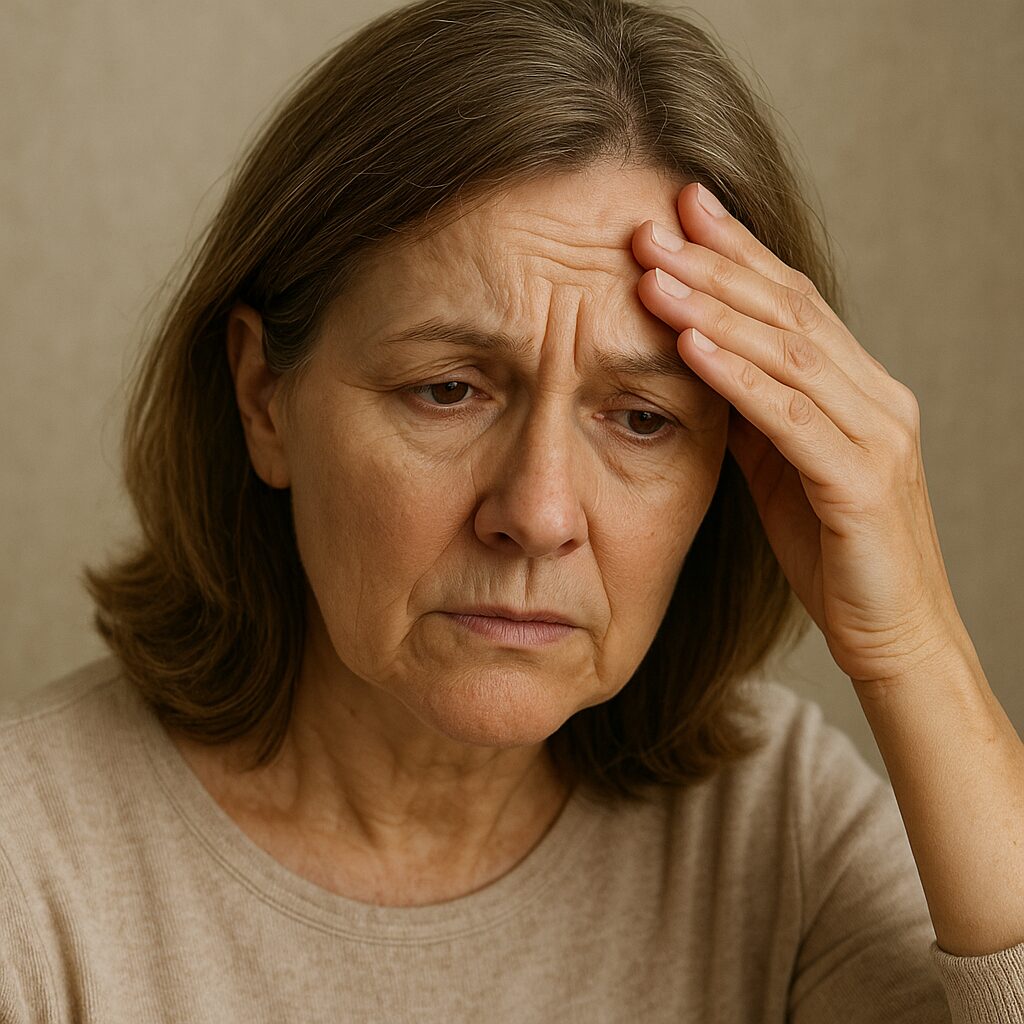Hormonal changes during the 50s, especially around menopause, may lead to symptoms such as insomnia, hot flashes, fatigue, and mood swings. While these are natural transitions, lifestyle adjustments can help reduce discomfort and improve daily well-being.

1. Consistent Sleep Routine
Going to bed and waking up at regular times may help regulate the body’s sleep rhythm. Avoiding caffeine, alcohol, and screen exposure before bedtime can also improve sleep quality.
2. Regular Exercise and Body Cooling
Moderate exercise such as walking, yoga, or light strength training may enhance blood circulation and improve sleep. Cooling techniques like light clothing and proper ventilation may also help with hot flashes.
3. Balanced Nutrition
Foods rich in calcium, vitamin D, and magnesium may support bone health and relaxation. Limiting spicy foods, alcohol, and caffeine may reduce the frequency of hot flashes and sleep disruption.
4. Stress Management
Stress may worsen both insomnia and hot flashes. Relaxation techniques such as meditation, deep breathing, and light stretching may ease symptoms and promote emotional stability.
5. Comfortable Sleep Environment
A cool, dark, and quiet bedroom may improve sleep quality. Using breathable bedding and blackout curtains can also create an optimal sleep environment.
6. Avoiding Smoking and Excess Alcohol
Nicotine and alcohol may interfere with circulation and sleep quality. Avoiding these habits can reduce symptom severity and improve long-term health.
7. Regular Health Checkups
Routine checkups may help detect and manage conditions such as osteoporosis or cardiovascular risks that often increase during menopause. Professional advice can provide tailored solutions when symptoms are severe.
🍀
Women over 50 may experience insomnia and hot flashes due to hormonal changes. By maintaining healthy sleep routines, nutrition, stress control, and regular medical care, symptoms can often be eased, supporting better overall quality of life.
References & Further Reading
North American Menopause Society – Menopause Health
World Health Organization – Women’s Health Guidelines
National Institutes of Health – Sleep and Aging
※ This article provides general health information only. Individual results may vary. For persistent or severe symptoms, professional medical consultation is recommended.